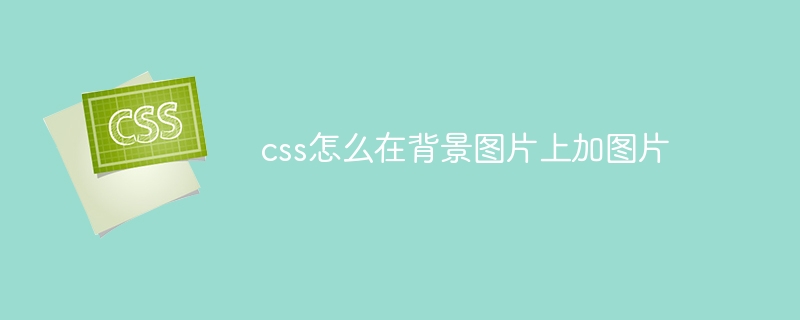
In CSS, you can overlay images onto background images. Methods include: specifying image URL (1), adjusting position (2), setting size (3), controlling transparency (4), and using CSS filters ( 5).

How to overlay images on background images in CSS
In CSS, you can overlay images on background images images to create richer, more visually appealing designs. Here's how to do it:
1. Use the background-image attribute
Use the background-image attribute to specify the overlay image URL. You can use multiple background images, separated by commas:
background-image: url("background-image.png"), url("overlay-image.png");2. Adjust the position of the overlay image
By default, the overlay image will cover the entire background image. To adjust the position of the overlay image, you can use the background-position attribute:
background-position: center center, top left;
3. To set the size of the overlay image
you can usebackground-size Property sets the size of the overlay image:
background-size: contain, 50% 50%;
4. Control the transparency of the overlay image
By using background-blend- The mode attribute can mix background images and overlay images:
normal: The overlay image completely covers the background image. multiply: The color of the overlay image is multiplied by the color of the background image to produce a darker effect. screen: The color of the superimposed picture is subtracted from the color of the background picture, producing a brighter effect. Example:
background-blend-mode: multiply;
5. Using CSS Filters
CSS filters can be applied to overlay images to further enhance their visual appearance Effect. For example, you can use the filter attribute to blur an overlay image:
filter: blur(5px);
By combining these attributes, you can create a variety of effects, such as:
The above is the detailed content of How to add image to background image in css. For more information, please follow other related articles on the PHP Chinese website!